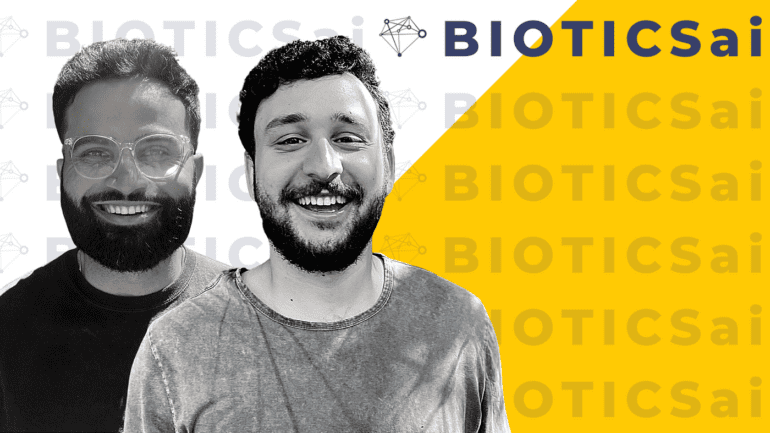TL;DR:
- BioticsAI, a startup, has developed an AI-based platform for improving prenatal ultrasound scans.
- Their platform assists in localizing fetal malformations, ensuring screening quality, and automating report generation.
- The startup aims to address the shortage of obstetrics professionals in many regions.
- BioticsAI’s AI-driven approach streamlines the ultrasound process, saving time for doctors.
- The platform integrates with existing ultrasound machines and has a 96% accuracy rate in malformation detection.
- BioticsAI has an extensive dataset of over one million prenatal ultrasound images and seeks to expand its partnerships.
- The startup discreetly alerts physicians to abnormalities, enhancing patient care.
- Automation of report generation aims to reduce OB/GYNs’ documentation time significantly.
- BioticsAI has secured pre-seed funding and is engaged in pilot programs and clinical studies.
- The company’s focus on second-trimester anomaly screenings may pave the way for expansion into other medical fields.
Main AI News:
In the realm of healthcare technology, innovation knows no bounds. Enter BioticsAI, a burgeoning startup poised to disrupt the field of prenatal ultrasound scans through the power of artificial intelligence. Over the past two years, BioticsAI has meticulously crafted an AI-based platform that seamlessly integrates with ultrasound machines, effectively eliminating the risk of fetal malformation misdiagnosis. Now, at the grand stage of TechCrunch Disrupt’s Startup Battlefield, BioticsAI is ready to unveil its groundbreaking product to the world.
Robhy Bustami, the co-founder and CEO of BioticsAI, shed light on the company’s mission: “BioticsAI processes all of the images and videos captured during the screening to localize fetus malformations, validate the quality and completeness of the screening, and then extract all the information to automatically generate reports.” This visionary endeavor is deeply personal for Bustami, who hails from a family with a strong connection to the field—his mother being an OB/GYN. Alongside co-founders Salman Khan, Chaskin Saroff, and Dr. Hisham Elgammal, Bustami is on a mission to redefine prenatal care.
Now, let’s delve into the problem that BioticsAI aims to address. In numerous countries and rural areas, a shortage of obstetrics professionals presents a daunting challenge. While the World Health Organization has outlined a meticulous process for prenatal ultrasound scans, time and staff constraints can easily lead to crucial fetal malformations being overlooked. BioticsAI’s raison d’être lies in ensuring that ultrasound screenings are conducted with utmost precision and efficiency. By harnessing artificial intelligence to streamline various aspects of the process and automate report generation, doctors can save valuable time and reduce their overall workload.
BioticsAI operates on three crucial fronts. First and foremost, the platform serves as a sentinel, alerting medical professionals when screenings fall short of completion. Its software seamlessly integrates with a wide array of picture archiving and communication systems (PACS) and medical imaging devices, making it an accessible addition to existing workflows without the need for costly hardware upgrades. Bustami emphasizes, “Our goal isn’t to build the next $200,000 ultrasound machine. Our goal is to integrate with an ultrasound machine that’s been around for eight years and significantly enhance the quality of screening.”
Following this, BioticsAI scrutinizes images to ensure that fetal images have been captured from all requisite angles, adhering to international standards. Mistakes, while inevitable, are invaluable opportunities for growth and learning. By addressing what Bustami terms “operator-dependent problems,” BioticsAI empowers doctors to make more efficient diagnoses. This is where the true magic of artificial intelligence comes into play. The company meticulously analyzes images to aid doctors in identifying fetal malformations, boasting an impressive 96% accuracy rate.
BioticsAI has amassed an extensive dataset comprising over one million prenatal ultrasound images, perpetually seeking new partnerships to bolster its database and enhance the algorithm’s precision. Importantly, the startup doesn’t directly deliver conclusions to patients. Instead, it discreetly alerts interpreting physicians to abnormalities, ensuring that critical issues do not go unnoticed.
Finally, the platform’s pièce de résistance lies in its ability to extract relevant data from images and automate report generation, a profound time-saving innovation. Bustami elucidates, “On average, OB/GYNs are spending 15 minutes per patient on generating reports and documentation. Our goal with our product is to mitigate that by automatically generating these reports and extracting all this information, providing valuable time savings back to the physician and back to the hospital.”
BioticsAI has already secured a pre-seed funding round from Techstars Boston and Blackbird Venture’s pre-seed program, Startmate, setting a strong foundation for commercialization. The startup has embarked on multiple pilot programs and clinical studies in collaboration with eight prestigious institutions.
While BioticsAI spearheads the charge, other companies like Ultrasound AI, Origin Health, and Sonio AI are also exploring the realm of ultrasound analysis with their unique perspectives and niche focuses. Bustami explains, “We focus the majority of our AI efforts on second-trimester anomaly screenings because this is where 90% of potential fetal abnormalities are screened for.” However, if BioticsAI’s vision materializes as intended, the company could swiftly expand into adjacent fields such as gynecology, urology, and neonatology, potentially becoming the quintessential AI diagnostics platform for reproductive health and beyond.
Conclusion:
BioticsAI’s innovative AI platform addresses critical challenges in prenatal care, offering a potential solution to the shortage of obstetrics professionals. With promising accuracy rates and a commitment to automation, the startup stands to reshape the market by improving the efficiency and effectiveness of prenatal ultrasound diagnosis, potentially expanding its reach to other areas of healthcare.

